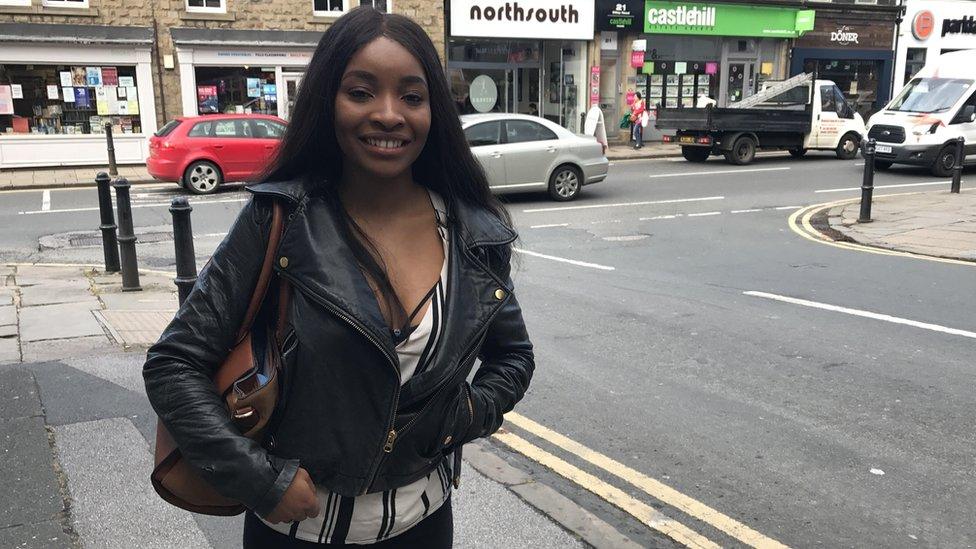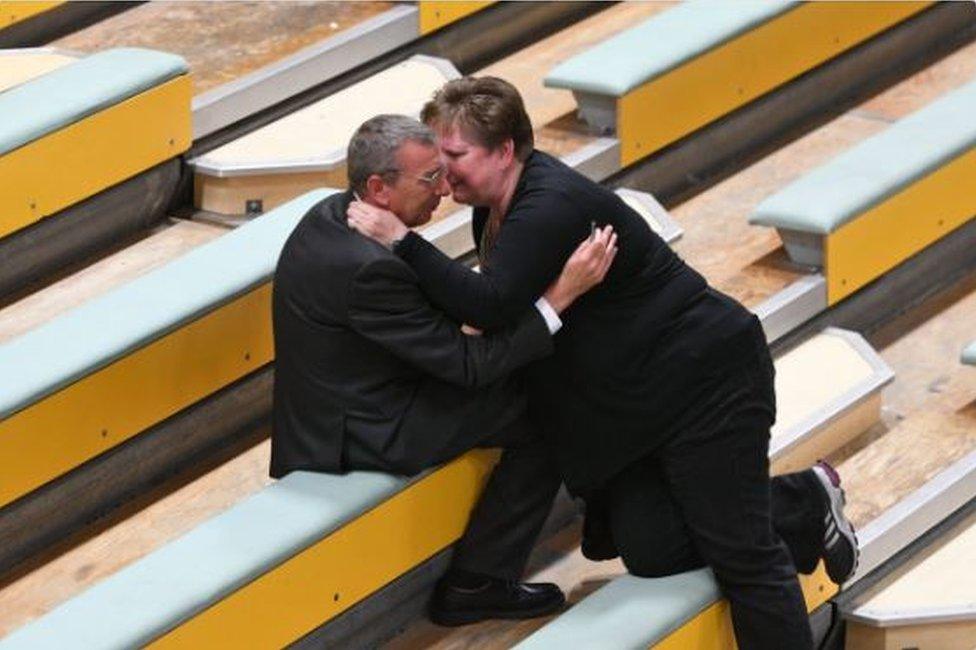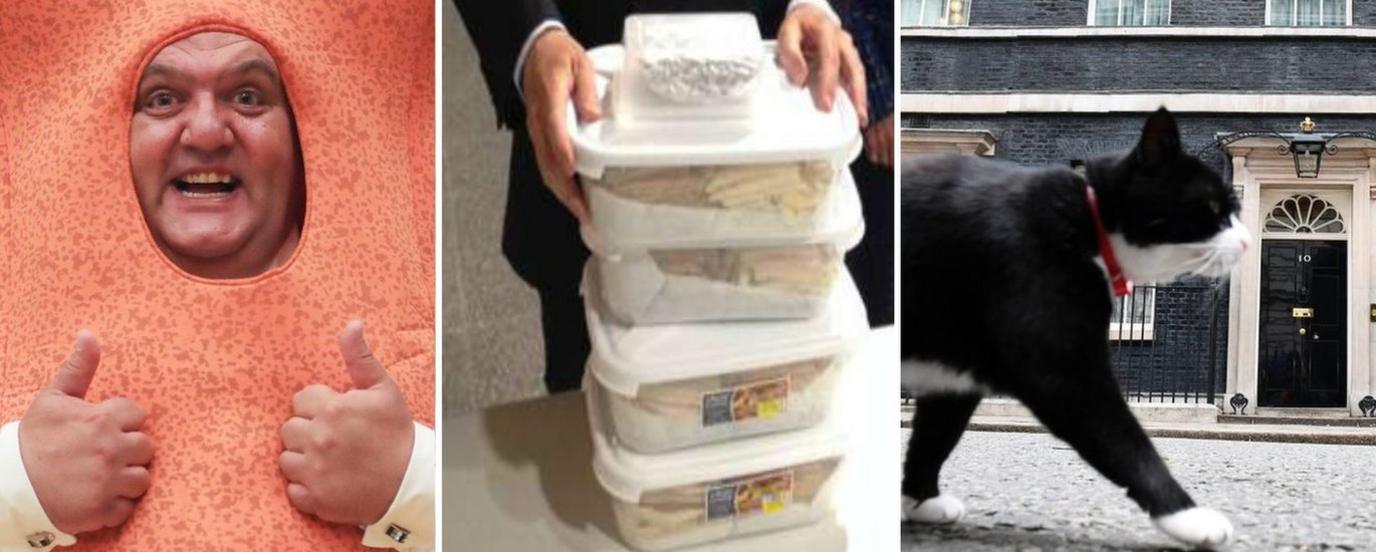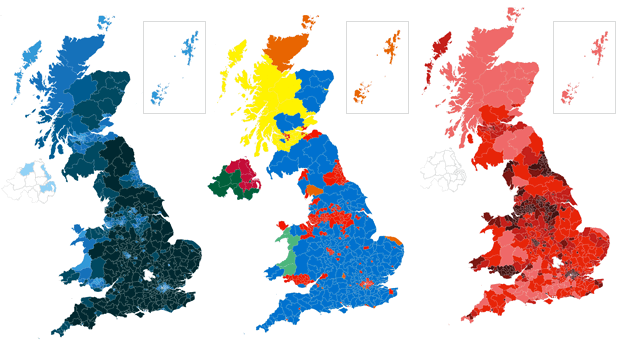Election results 2017: England winners and losers
- Published

Preet Gill celebrates becoming the first female Sikh MP and Nick Clegg mourns the loss of the Sheffield Hallam seat
As the UK faces the uncertainty of a hung Parliament, BBC England looks at the winners and losers of a dramatic night.

Youth triumph

Elsi from Headingley said her Labour vote was strategic
It was a win for youth democracy with a reported surge in 18 to 24-year-olds at the polls eager to get their voices heard.
A high turnout among young voters boosted Labour's vote share, the National Union of Students said, but this is yet to be officially verified.
The Labour Party performed strongly in areas with universities including Sheffield and Canterbury.

In Headingley, Leeds, young Labour voters celebrated their part in toppling two Liberal Democrat MPs in favour of Labour candidates.
Elsi, 19, a midwifery student from Headingley said her vote was "strategic".
"I'm an NHS student so that was a factor. Labour is very supportive of funding the NHS and supporting that. It wasn't just for my career but it was for helping other people too," she said.
Rashelle Thomas-Jarrett, 23, a healthcare student also from Headingley, said: "I thought if I did vote Labour there was more of a chance of getting Theresa May out."

Rashelle Thomas-Jarrett said she voted for Labour for a chance to get Theresa May out of Downing Street
Lost in administration
Meanwhile, some students at Keele University in Staffordshire in say they were unable to vote after being told their "names were not on the list" at polling stations.
Victory for diversity
General Election 2017: Preet Gill becomes first female Sikh MP
In the West Midlands, Sandwell councillor Preet Gill became the first ever female Sikh MP, holding Birmingham Edgbaston for Labour. She takes over from Gisela Stuart, who stood down after 20 years.

Famous fails
Nick Clegg: "There's a huge gulf between young and old"
In Sheffield Hallam, former deputy prime minister Nick Clegg was one of the highest-profile figures in England lose his seat, with Labour's Jared O Mara winning by more than 2,000 votes.
But fellow Liberal Democrat Sir Vince Cable regained the Twickenham seat he had lost to the Conservatives in 2015.
Paul Nuttall, UKIP's leader, failed in his bid to win Boston and Skegness and subsequently stood down as head of the party.

Emotional scenes
First-time candidate Mike Hill was reduced to tears as he hugged wife Glynis as it became clear he had held the Hartlepool seat for Labour, the Hartlepool Mail reported.
"It's an emotional experience. It's being proud of an achievement and proud that people have had faith in a fresh face," he told the paper., external

Mike Hill was emotional as he won the Hartlepool seat

Revelling in British humour
The election brought out the best in English eccentricity with a candidate dressed as a giant fish finger, tongue sandwiches at the count and cat fights over Downing Street.

A man dressed as a fish finger, tongue sandwiches and Palmerston the cat

Conservative coup
A 26-year-old city councillor gained a seat in Stoke-on-Trent South for the Conservatives for the first time in more than 80 years. Jack Brereton unseated Labour's Rob Flello with a majority of 663.
General Election 2017: 'Phenomenal' win for Conservatives in Stoke

Close win
In was a close call for some seats with the Tories taking Richmond Park by just 45 votes. Zac Goldsmith was back in six months after losing the seat in a by-election.
In Dudley North, Labour's Ian Austin held on by a slender 22 votes while in Southampton Itchen, Conservative Royston Smith has a majority of 31.

Upset for UKIP
UKIP received less than two per cent of the vote nationally and was reduced to third place in Clacton, the one seat it won in 2015.
The party had chosen not to field candidates in 247 constituencies where it stood in 2015, 197 of them in England.

- Published10 June 2017
